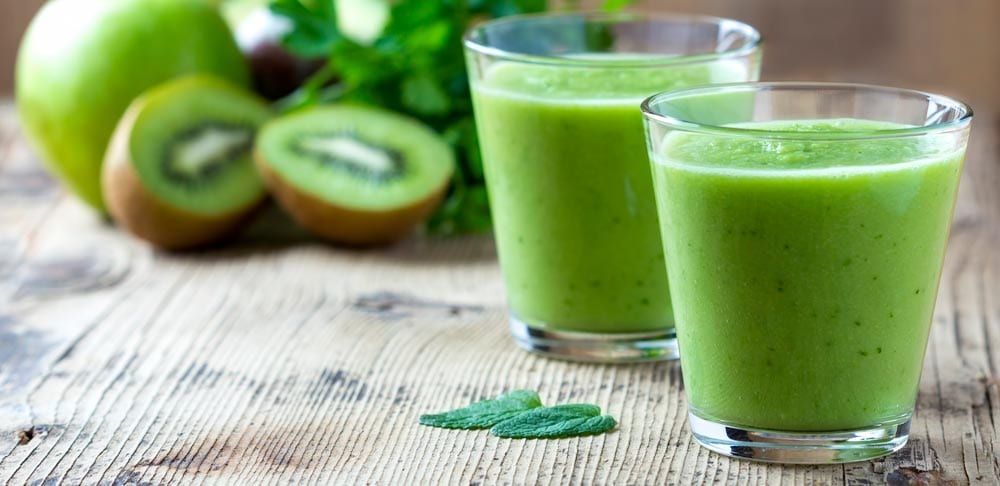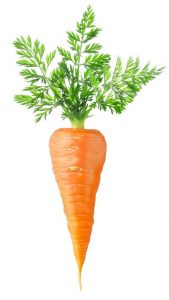
You’ve probably come across magazine articles touting the health benefits of fruits and vegetables. At first, everyone was into juicing, then along came smoothies. But when we look at the sugar content, carbohydrate load and calories of some drinks being sold, it leaves many of us wondering which foods are seriously beneficial to your health and which are just food industry fads?
Nutritionists agree that adding antioxidants to your diet can not only improve your health overall, but also are especially good foods for eye health. Antioxidants are a group of vitamins, minerals and nutrients that inhibit the formation of free radicals which are the by-product of cellular activity in our bodies that can damage healthy cells. Oxidative damage has been linked to diseases such as cancer, heart disease and Alzheimer’s.
It turns out there are good foods for eye health…

Patients often ask us if we can recommend any supplements or vitamins for eye health. Truth is, it can be difficult for the lay person to weed out which vitamin is good for eyes. In fact, we recommend against taking vitamin and mineral supplements because antioxidants are best absorbed from the food we eat. Instead, we recommend eating foods rich in antioxidants.
What foods improve eyesight naturally?
Lucky for us, antioxidants can be found in all sorts of delicious foods that may already be in our daily diets such as carrots, dark leafy greens, seeds, nuts, citrus fruits and oily fish. And yes, many of these can be combined to make a delicious smoothie, although I wouldn’t necessarily recommend a mackerel smoothie 😉
Foods that are good for your eyes
Here are ten food groups compiled by the American Optometric Association that contain the above list of vitamins and minerals that are not only good for your eyes but also vital for your overall health:
- Nuts, seeds and legumes – nuts are rich in Omega-3 fatty acids and Vitamin E which can help protect your eyes from age-related damage. We recommend walnuts, cashews, peanuts, Brazil nuts. Seeds, such as chia, flax and hemp seeds are also a good source of Omega 3s. Pumpkin and sunflower seeds are rich in zinc and copper, two antioxidants needed to produce red blood cells, important for transporting oxygen to your eyes.
- Legumes – such as lentils, chickpeas and beans, not only provide Omega-3 fatty acids, zinc and Vitamin E, but are also a good source of protein.
- Citrus fruits – such as lemons, oranges and grapefruits are not only delicious, but a rich source of Vitamin C. Vitamin C not only lowers your risk of cataracts, but also can lessen your chance of developing age-related macular degeneration when taken in combination with other eye friendly nutrients.
- Leafy greens – such as kale, spinach and collard greens are an important source of lutein and zeaxanthin – two nutrients that are essential for filtering eye-damaging blue light and which we are unable to produce in our bodies. An important study known as AREDS2 found that these nutrients play a key role in reducing the risk of eye diseases like cataracts and in macular degeneration prevention.
- Oily fish – such as tuna, salmon, trout, sardines, anchovies, herring and mackerel. These fish have oil in their gut and flesh, making them a rich source of Omega-3 fatty acids. Omega-3s, high in EPA/DHA, have been shown to be important for proper visual development and retinal function.
- Carrots
 – are rich in Vitamin A and beta carotene (that the body needs to make Vitamin A). Vitamin A plays an important role in vision because it is a component of a protein called rhodopsin that helps your retina absorb light. Beta carotene was included in the original AREDS1 study but a follow up study (known as AREDS2) found that beta carotene increased the risk of lung cancer in current and former smokers. As such, this group is advised against taking beta carotene.
– are rich in Vitamin A and beta carotene (that the body needs to make Vitamin A). Vitamin A plays an important role in vision because it is a component of a protein called rhodopsin that helps your retina absorb light. Beta carotene was included in the original AREDS1 study but a follow up study (known as AREDS2) found that beta carotene increased the risk of lung cancer in current and former smokers. As such, this group is advised against taking beta carotene. - Sweet potatoes – Like carrots, sweet potatoes are rich in beta carotene, but with the added bonus of being a good source of another antioxidant, Vitamin E.
- Eggs – are an excellent source of lutein and zeaxanthin, both of which decrease the risk of age-related vision loss. Eggs also contain three other antioxidants important to eye health: Vitamin C, Vitamin E and zinc. It’s important to know that over 90 percent of these antioxidants are found in the egg yolk, so you might want to reconsider those egg white omelets.
- Beef – Grass fed beef is an excellent source of dietary zinc which can help slow down age-related vision loss and macular degeneration. Shellfish is another source of zinc, although ounce for ounce it delivers half as much zinc as beef. Our eyes store high amounts of zinc in the retina and the blood vessels surrounding it.
- Water – It stands to reason that the fluid that’s essential for life itself is also critically important for eye health. In fact, drinking lots of water prevents dehydration and may help with dry eye symptoms.
So, the next time you’re wondering what to have for breakfast, whip up a green smoothie and toss in a few of these ingredients (except maybe the mackerel). Your eyes will thank you!
Why Choose Assil Gaur Eye Institute for your eye care?
The doctors at Assil Gaur Eye Institute offer world-class eye care and vision correction specializing in LASIK, cataract, cornea, retina and glaucoma treatments. At AGEI, you will experience state-of-the-art medical facilities that bring together revolutionary technologies with the most experienced hands in ophthalmology. Our goal is to help you achieve your personal best vision.
For more information or to schedule a consultant, please call 866-945-2745 or visit us here to make an appointment.
- Why is My Iris Inflamed? When to See a Doctor for Iritis - 12/01/2023
- How Your Vision Changes in Your 40s and 50s - 10/17/2023
- Winter Dry Eye Care Tips - 11/02/2021
 – are rich in Vitamin A and beta carotene (that the body needs to make Vitamin A). Vitamin A plays an important role in vision because it is a component of a protein called rhodopsin that helps your retina absorb light. Beta carotene was included in the original AREDS1 study but a follow up study (known as AREDS2) found that beta carotene increased the risk of lung cancer in current and former smokers. As such, this group is advised against taking beta carotene.
– are rich in Vitamin A and beta carotene (that the body needs to make Vitamin A). Vitamin A plays an important role in vision because it is a component of a protein called rhodopsin that helps your retina absorb light. Beta carotene was included in the original AREDS1 study but a follow up study (known as AREDS2) found that beta carotene increased the risk of lung cancer in current and former smokers. As such, this group is advised against taking beta carotene.












